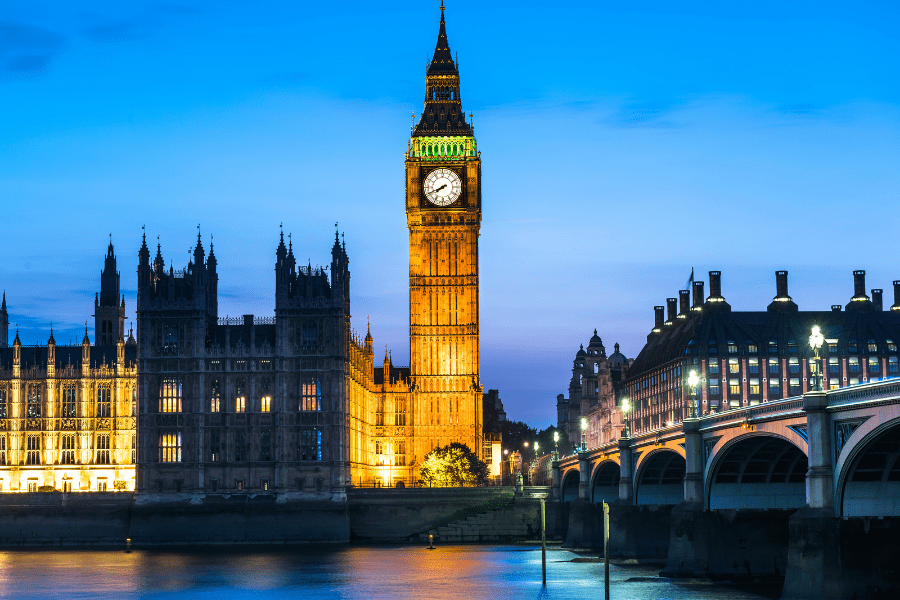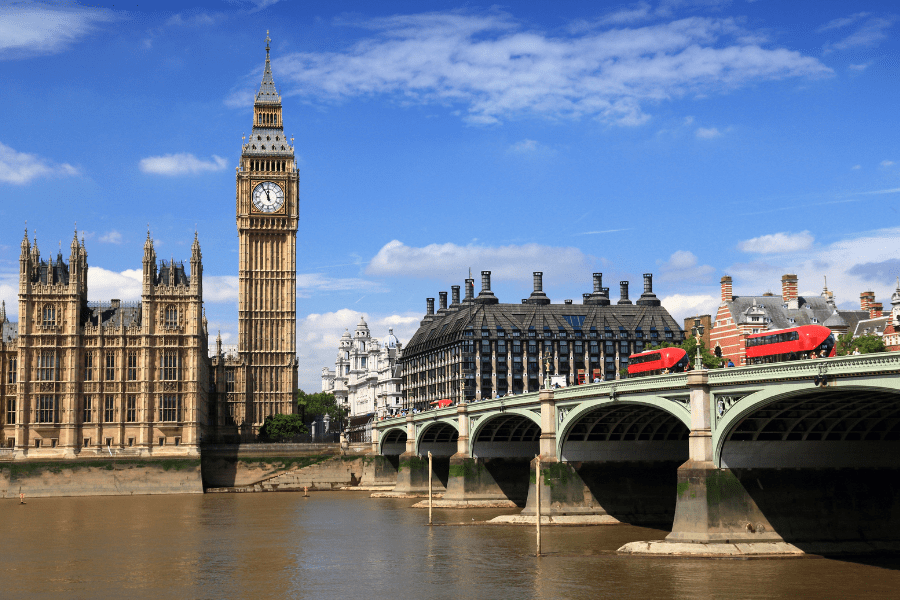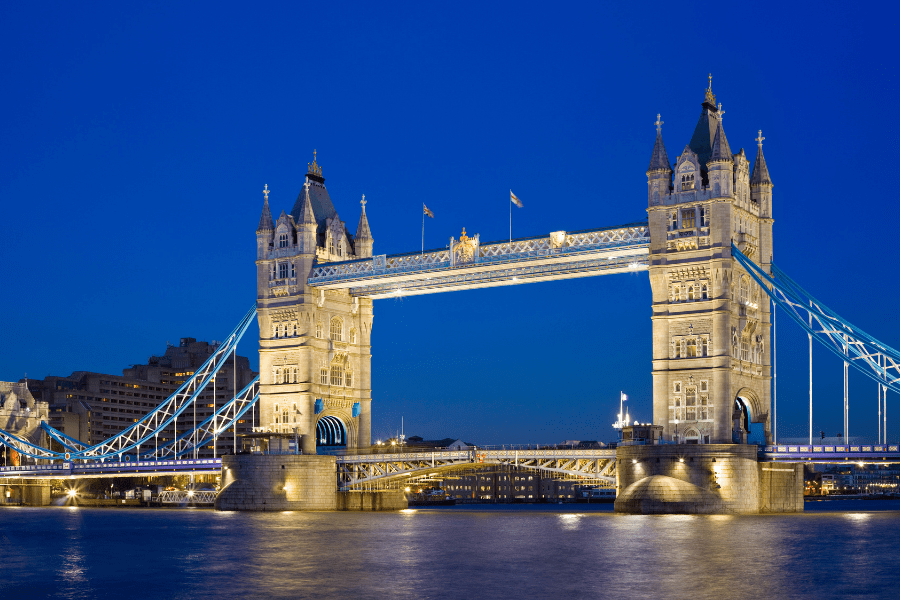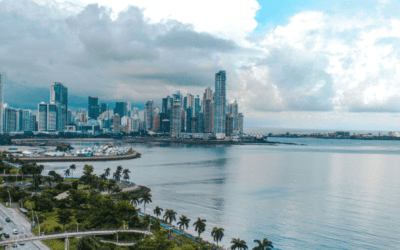If you’re a UK non-domiciled resident with a permanent home outside the jurisdiction, you will pay tax differently than a standard resident. You can achieve a tax reduction which is the end goal for many nomad capitalists. This article covers the non-domiciled tax UK environment.
You value tax savings. What irritates you is the Big Brother government and their mob-like plundering of your hard-earned income. You might therefore be pleasantly surprised to discover non-doms in the UK can benefit from UK tax legislation.
The United Kingdom is one of many countries where wealthy individuals can protect their assets.
Nomad Capitalist can suggest plenty of jurisdictions where more of your money earned stays in your pocket. As part of a holistic Action Plan, we have helped HNWIs become tax residents across the globe.
Keep reading to learn more about taxes for non-doms in the UK, the benefits, and the requirements.

United Kingdom Country Overview
The United Kingdom consists of the island of Great Britain, which houses England, Scotland, and Wales, as well as Northern Ireland. London is the capital of England and the UK, and the population of the entire jurisdiction is tipped to hit 67.9 million in 2023.
An island nation, the UK has always looked outward and has established a formidable international trading economy. The 19th-century Industrial Revolution helped turn the nation into a superpower, but by the end of the 20th century, the UK began its pivot from an industrial economy to the more service-based economy it has today.

UK Non-Dom Status Benefits
You may not have to pay tax in the UK on foreign earnings if you’re a resident with a permanent abode, aka domicile outside the UK. There’s more good news for non-doms. You’re also protected from taxation if you realize any foreign capital gains from rental income or shares.
Non-doms do not pay tax in the UK on their non-UK income and capital gains if they’re less than £2,000 in the tax year, and they don’t transfer them to a UK bank account, effectively bringing them into the country. In this case, you don’t have to inform the UK tax authorities.
Non-dom status can protect you from paying inheritance tax (IHT) on your worldwide assets.
Become a Nomad Capitalist client, and we will smooth your path from tax resident in the UK to non-UK resident, directly impacting your taxable income and gains.
UK Non-Dom Status Requirements
Your place of domicile is essentially your homeland. It’s where you have your long-term permanent address. It is the country with which you have the closest ties and the country where you intend to retire.
If that country is not the UK, but you are resident in that jurisdiction, you are considered a non-dom for tax purposes. You can join the UK nom-dom regime like British Prime Minister Rishi Sunak’s wife, Akshata Murty. She is a tax resident whose Indian citizenship justifies her non-dom status as it signals intent to return to her homeland in the future.
Although Ms. Murty is well within her rights to claim non-dom status, from a legal perspective, she nonetheless opted to pay UK tax on her foreign earnings in the future for obvious political reasons (and to avoid the media spotlight).
You need to alert the UK tax authorities if, as a non-dom, your worldwide income is £2,000 or more.
In a self-assessment tax return, you must report foreign income or gains of £2,000 or more. Then you need to decide whether you want to be taxed on them, which you may be able to claim back or pay the charge to access the remittance basis of taxation.
By claiming the remittance basis, you are taxed on the income or gains you bring to the UK, but you lose tax-free allowances for income tax and CGT. However, some dual residents retain the eligibility to qualify for these. You also need to pay an annual charge relating to your years as a non-resident in the UK:
- £30,000 if you’ve been in the UK for at least seven of the previous nine tax years
- £60,000 for at least 12 of the last 14 tax years.

UK Non-Dom Status Conclusion
Non-domiciled residents are UK residents who have their domicile outside the UK, as in the permanent abode. This earns them the potential right not to be taxed on foreign earnings. They are also not liable for capital gains earned overseas on their foreign shares or rental income.
Your domicile is typically the country your father regarded as his permanent residence when you were born. Yet it may have changed if you relocated abroad and have no intentions of returning.
If you do not bring your foreign income or gains into the UK or they’re under £2,000 in the tax year, under non-dom rules, there’s no need to report them.
However, you must report foreign earnings or gains of £2,000 or more or any money you bring to the UK.
You can pay UK tax on them or claim the remittance basis. The choice is yours. There’s an annual charge to be paid. It is £30,000 if you’ve been in the UK for at least seven of the previous nine tax years or at least £60,000 for at least 12 of the last 14 tax years.
Those who have claimed non-dom status to keep more of their worldwide income, such as Rishi Sunak’s wife, Akshata Murty, have ended up in the headlines for all the wrong reasons.
The remittance basis is also tricky to negotiate, which is where our specialist team of advisors comes in.
Go Where You’re Treated Best
Will you have to pay UK taxes on your overseas income as a non-dom resident in the UK?
We can help you answer that question because non-dom rules are particularly problematic when applied to non-UK source income. Taxation in the UK is a complex topic, and we can help you navigate it successfully.
Non-doms in the UK might not be around forever as there is considerable political pressure to eliminate it.
There are other countries where having claimed non-dom status means your foreign assets, income, and capital gains are taxed less. Cyprus, Malta, and Ireland also offer a non-dom regime with a low tax system.
Malta also uses the remittance basis of taxation for non-doms. They offer a flat rate tax at just 15% on income and gains derived from Malta and income remitted to Malta.
Remitted capital gains are, in some cases, free of taxes. Unlike in the UK, they don’t impose an annual remittance basis charge.
So if you are looking for UK tax advice and/or a tax-efficient jurisdiction in Europe with easy access to the UK market, become a Nomad Capitalist client and go where you’re treated best.

UK Non-Dom Status FAQ
Non-dom is an abbreviation of non-domiciled individual.
It describes a UK resident whose permanent home, or domicile, is outside the UK.
Non-dom is a label for tax status rather than an adjective relating to citizenship, resident status, or nationality. However, these elements affect whether you qualify for the non-dom regime.
Non-doms can be those who HM Revenue and Customs exempt as foreign workers with an income from a foreign job that is less than £10,000 per year.
Their other foreign income (such as bank interest) is less than £100. All earnings have been subject to foreign tax. The non-doms’ combined UK and foreign income must fall within the basic income tax rate band.
We can help you with much more than non-dom tax. Our holistic plans cover everything from acquiring a UK passport to tax returns in general. We are the safe hands that can handle all your financial needs.










